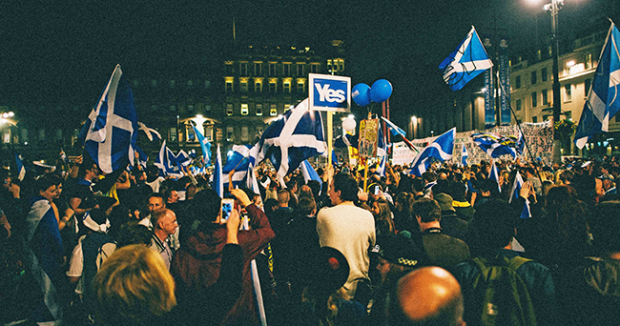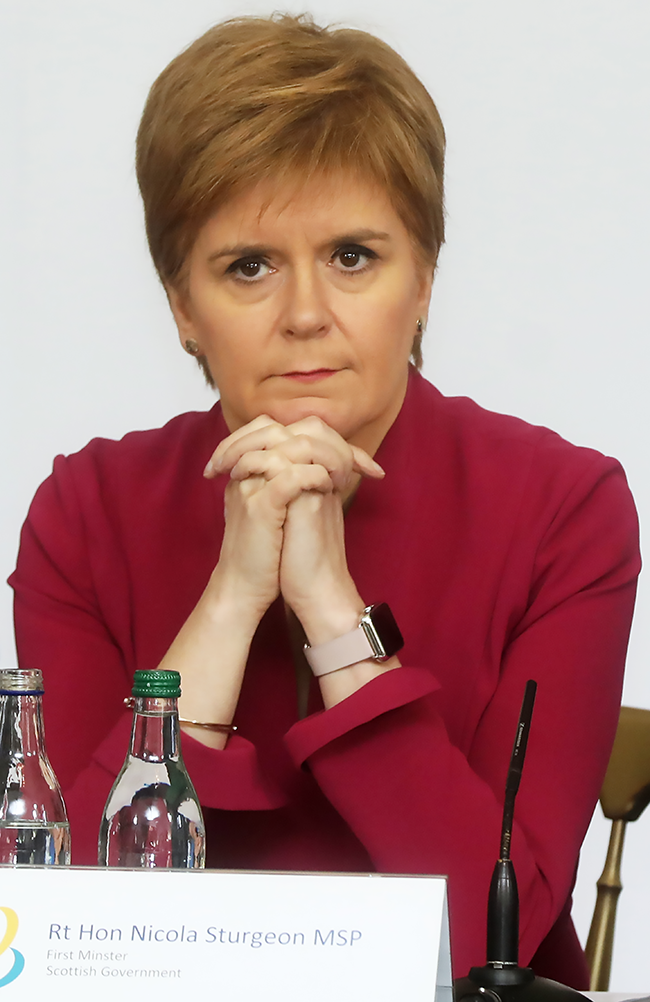4 August 2022 Edition
Scotland has nothing to fear from making its own way in the world

• The SNP secured the 2014 Scottish independence referendum
Scottish National Party President Michael Russell writes on the path towards a new independence referendum in Scotland
• • • • • • • • • • • • • •
There was a joke in the 1970s when a Scottish Devolution Bill was making its very slow and bumpy way through the UK House of Commons. “Which takes longer”, was the question, “devolution or evolution?”
Scotland is a slow burn country in terms of constitutional change. Our Parliament was adjourned (not abolished) in 1707 and only reconvened in 1999, the intervening 292 years being the longest democratic interregnum in history.
It also took two attempts over almost 25 years - and two referenda - to secure even a limited transfer of some legislative powers back to Edinburgh, despite democratic majorities first time round. The new Parliament finally met 86 years after the First Scottish Home Rule Bill had received a second reading at Westminster.
The desire for self-determination may be universal, but all national movements are different. How and to what degree they move forward depends on the structures and circumstances within which the demand is being expressed. Scotland’s slow but steady progress towards restoring self-government has been completely peaceful and democratic over the past 200 years and that won’t change.
The pressure for a greater degree of administrative and legislative responsibility in Scotland emerged publicly almost a 150 years after the Parliamentary Union of 1707 with the establishment of the National Association for the Vindication of Scottish Rights in 1853, a body that was mostly supported by Tories and established as a reaction to what was seen - it may be strange to recount - as more favourable treatment of Ireland by Westminster.
From those modest beginnings grew a variety of organisations and campaigns which by the 1960s were supported, at least in part, by many in the UK parties who felt that that the governance of Scotland in some domestic matters would be better undertaken closer to its citizens and by its own more responsive parliament.
Yet as that view progressed, it found itself in contention with two others - one being a demand for complete independence and the other a small but vocal opposition to any change at all. The working out of these tensions has been the dominant issue in Scottish politics for the last half century.
The independence referendum of 2014 came about because the SNP - a party founded in the 1930s to secure Scottish Home Rule, but which developed into one that sought complete autonomy - was able in 2011, against the odds, to form a majority government in a proportional electoral system, having previously formed a minority administration after the 2007 election.
Westminster under David Cameron eventually agreed that Scotland had the right to consult its citizens about its own constitutional future avoiding a lengthy legal dispute about whether, under the Scotland Act that had established the Parliament, such approval was needed for matters not devolved (such as the Constitution).
Support for independence grew during the two-year campaign from around 30% to a peak of just over 50% a week before the poll. It was beaten back to the final 45% by a concerted and panicked effort from the mainstream UK parties who indulged in a blizzard of scaremongering as well as making a series of promises including a final massively publicised pledge jointly signed by the then UK Leaders of the Tory, Labour, and Liberal Parties which claimed that voting no would “deliver faster, safer and better change than separation”.
That of course has not happened. After some initial concessions, the reverse has been the case as increasingly right-wing Tory governments, with little Labour or Liberal opposition, have sought not to enhance Scottish powers, but undermine and diminish them, a process exacerbated by Brexit which was itself overwhelmingly rejected by the Scottish people, but which was imposed none less.

• Scottish First Minister, Nicola Sturgeon
At the Scottish elections of 2016, only six weeks before the Brexit referendum, the SNP explicitly stated in its manifesto that any attempt to take Scotland out of the EU against its will would be grounds for a new independence referendum.
Nonetheless, the SNP Government in 2021 - now in its fourth successive term and with the independence supporting Scottish Green Party in the administration giving another overall majority - did repeatedly seek to honour the Scottish consensus against Brexit by negotiating a compromise such as the Protocol provides for Northern Ireland.
However, this was repeatedly and contemptuously refused by the Tories and the current grubby Tory Leadership contest confirms that it is their intention to accelerate their attack on the Scottish Parliament and Scottish democracy in order to diminish and most probably destroy even the limited devolution that exists.
Moreover, unlike in 2014, the UK parties together have repeatedly refused to co-operate with the Scottish Government in assisting with the legislation for a referendum.
Instead the response has actually deteriorated from Theresa May’s cold “this is not the time” to Liz Truss’s sneering intention to, in her actual words, “ignore” the “attention seeking” of the Scottish First Minister when Nicola Sturgeon attempts to honour not just one electoral mandate for a second independence referendum, but a mandate given by the Scottish people to the SNP at every election since 2014, in contrast to the lack of a Tory mandate, that party not having won a Scottish election since 1955.
This issue needs to be put to the test and the democratic route to self-determination defined and taken in contrast to the Westminster attempts to obfuscate and bar it.
Thus, the Scottish Government in June referred the question of Westminster involvement in the decision to hold a referendum to the UK Supreme Court for a definitive determination.
If the court holds that the Scottish Parliament has the right to hold such a poll no matter what London thinks, it will take place on 19 October 2023.
If it does not, Scotland’s First Minister has confirmed the Scottish Government’s intention to treat the next Westminster Election (due to be held by the end of 2024) as a plebiscite on independence, with the independence supporting parties aiming to secure more than 50% of the vote and using that as the foundation for progress to independence and an application to rejoin the EU.
There is a renewed determination in the SNP-Green Scottish Government to secure Scotland’s right to choose how it wishes to be governed. Opinion polls suggest that, at the worst, the current situation is 50/50. A vigorous and informed campaign, illustrated not just by Brexit but by the toxicity of the current Tory leadership and the repeated impotence of UK Labour, which now backs Brexit, will make all the difference and that is currently getting underway.
Scotland is a well-educated, productive, and well-resourced nation. It has nothing to fear from making its own way in the world and that will be proved resoundingly when it is achieved
And achieved it will be.



